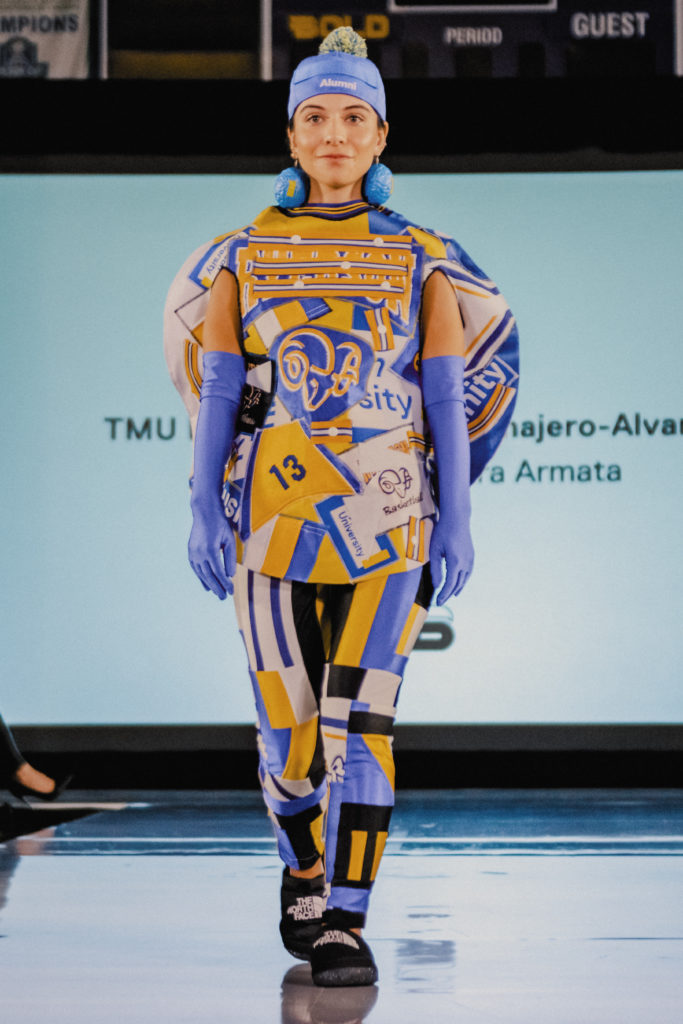How Brands Can Sustainably Dispose of Old Merchandise

In August 2021, Ryerson University’s board of directors voted to change the school’s name. This ended the institution’s 73-year commemoration of Egerton Ryerson, a 19th century Methodist minister who founded Canada’s public school system—but who was also instrumental in designing Canada’s genocidal residential school system. In April 2022, the school was officially renamed Toronto Metropolitan University, or TMU. But the name change introduced a new problem: what to do with the thousands of pounds of campus merchandise with the old name?
From Ryerson-branded sports jerseys to lanyards, water bottles, coffee cups and stationary, the sheer amount and variety of products presented a significant challenge. Nuala Byles, marketing director for the school’s newly renamed sports team “TMU Bold,” and Gina Vaccaro, manager of finance and strategic operations, came up with an innovative plan they called the Branded Materials Transition Project (BMTP).
Since the old name was deemed harmful to the university community, the goal was to take as much Ryerson merchandise out of circulation as possible—but crucially, to deal with it responsibly, in accordance with the school’s value of sustainability. Many of the materials in question, like polyfiber jerseys, were not easily recyclable. And since upcycling—the creative reuse of old materials to make a higher-value end product—is a more sustainable alternative to recycling, the pair decided to focus their efforts there.
Related: Inside Pro Sports’ Reckoning With Racism
Byles and Vaccaro launched their campus-wide project in June 2022. Knocking on department head doors and advertising BMTP through email blasts, a team of students and faculty volunteers assembled to tackle the project. “Volunteers literally sat around tables trying different things, like using acetone to remove old branding from items,” says Byles. “We had to be scrappy.”
The goal was to engage the university community—including volunteers from the Creative School where the fashion department lives, the Central Communications office and TMU’s alumni network—to collect branded materials to upcycle, reuse or repurpose. Anything that couldn’t be upcycled was to be recycled, working with private local recycling groups to deal with materials not accepted by municipal facilities. The team used acetone-based nail polish to remove branding on plastic water bottles, metal to-go cups and locks, and covered up the name Ryerson on USB drives and tote bags with paint and nail polish. In many cases, these de-branded items were returned to their original department for reuse.
More than 20,000 lanyards were dismantled into their component parts—the metal clips were returned to vendors for reuse, and printed ribbons were kept by the TMU’s fashion school for future use. Print vinyl overlay was removed from buttons and pins; the blank metal parts were snapped back together and reused to make new buttons. In total, the project collected nearly 4,800 kilograms of merchandise and swag.
Related: Everyone Sees Themselves in the New Barbie—and That’s a Goldmine for Brands
As for the 3,560 kilograms of branded apparel collected, including sports uniforms and staff gear, volunteers manually sorted the textiles to determine what could be upcycled, donated or de-branded and reused. The department created patches to stitch on top of “Ryerson” on some of the uniforms, while others were stripped of their branding. The de-branded materials were distributed to a handful of on-campus faculties, like the School of Fashion and School of Performance for sewing projects, and to community organizations like Homeless Connect Toronto.

To cap off the project and make good use of apparel that couldn’t be recycled, the Department of Athletics and Recreation partnered with TMU’s Creative School and Office of Sustainability to transform the textiles into runway-ready creative pieces. The School of Fashion reached out to alumni, student and local designers such as Megan Chee-A-Tow and House of Hendo to create the 27 striking pieces, including bold jumpsuits, dresses and jackets in the school’s trademark colours of blue and yellow, which were modelled by student athletes in a fashion show in November 2022, and later auctioned off. The fashion show tickets and auction raised $12,000 for the TMU Bold Equity and Inclusion Award—a fund for student athletes from equity-deserving groups.
Byles’s advice for any company looking to responsibly deal with out-of-date merchandise? Engage the right expertise. “Dealing with this volume of product responsibly is a lot of work. If you don’t have the time, don’t try to do everything yourself,” she says. “Maybe that means engaging your sustainability department, or hiring a sustainability intern. You need to be creative, innovative and scrappy, which might necessitate bringing in a project manager, somebody to own the project from beginning to end.”









